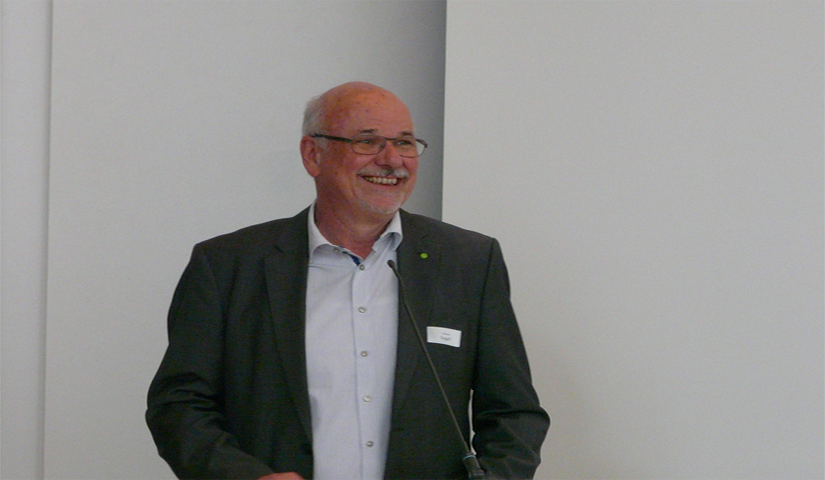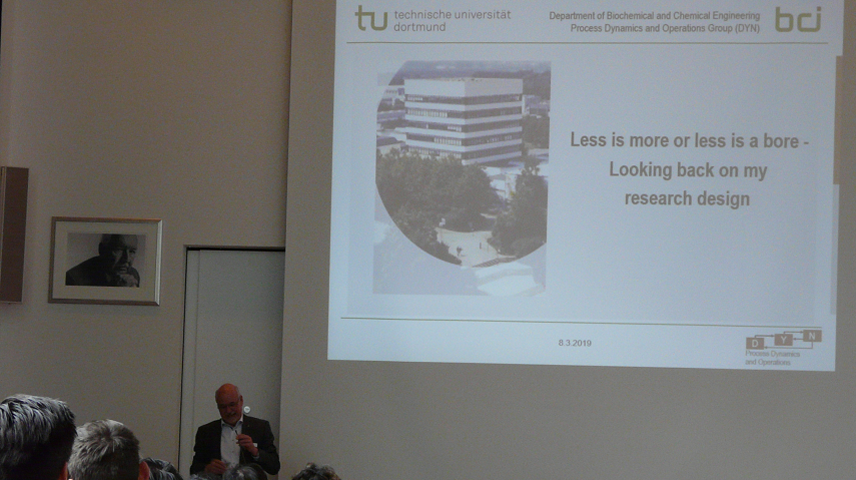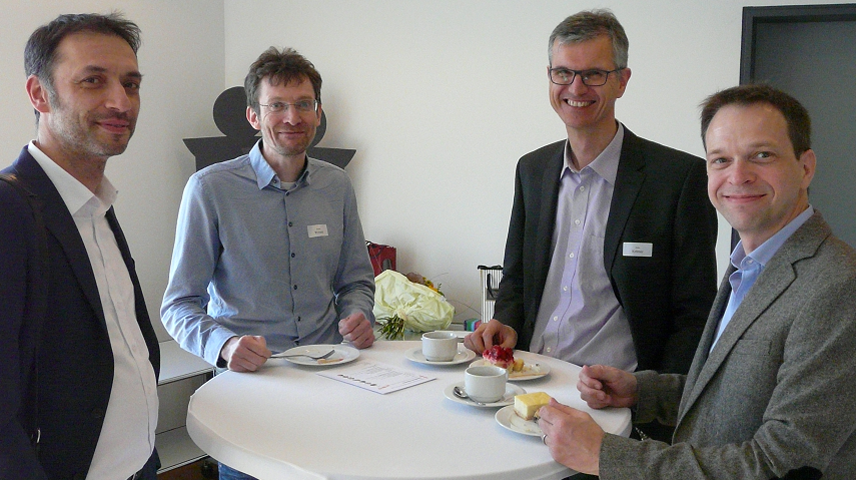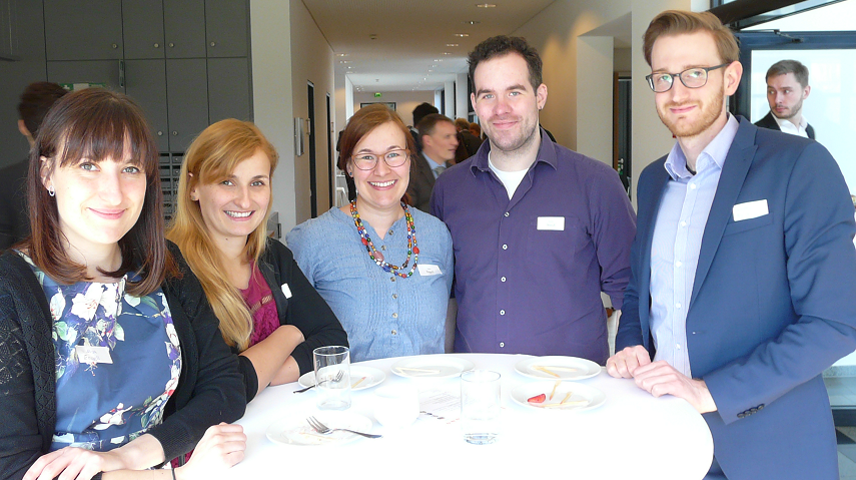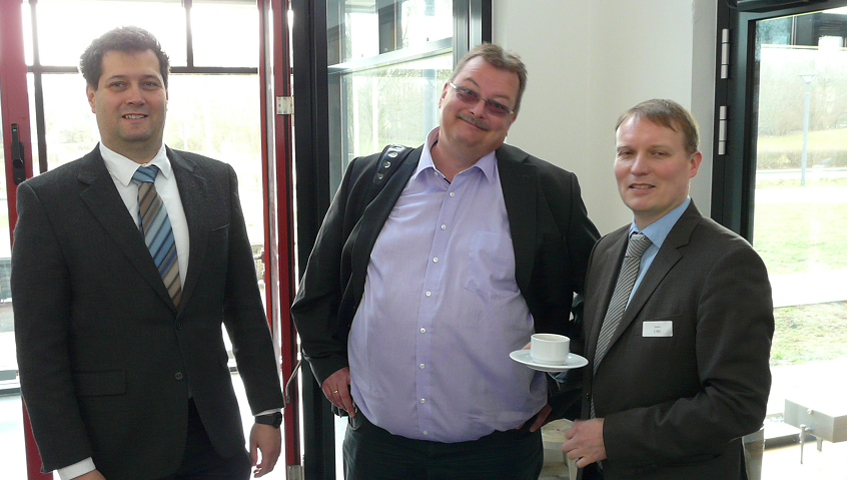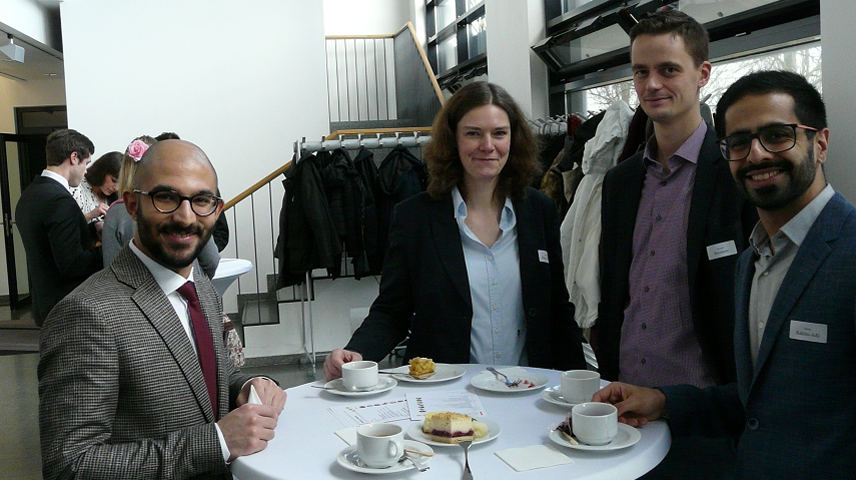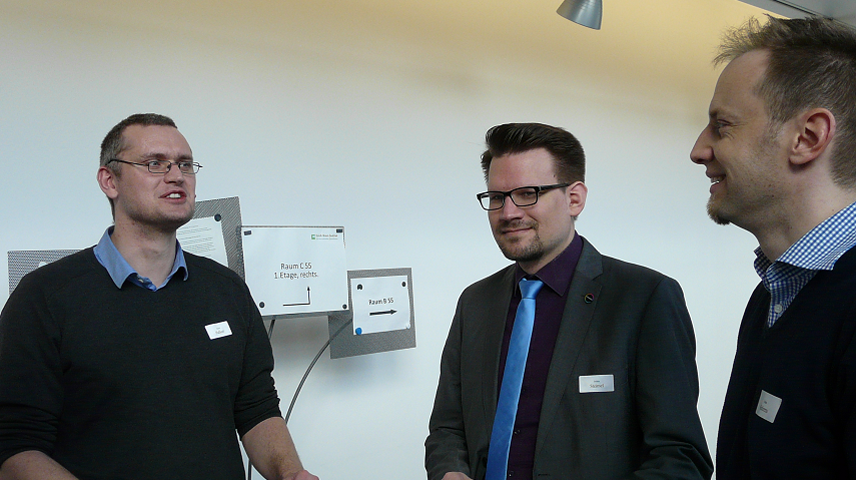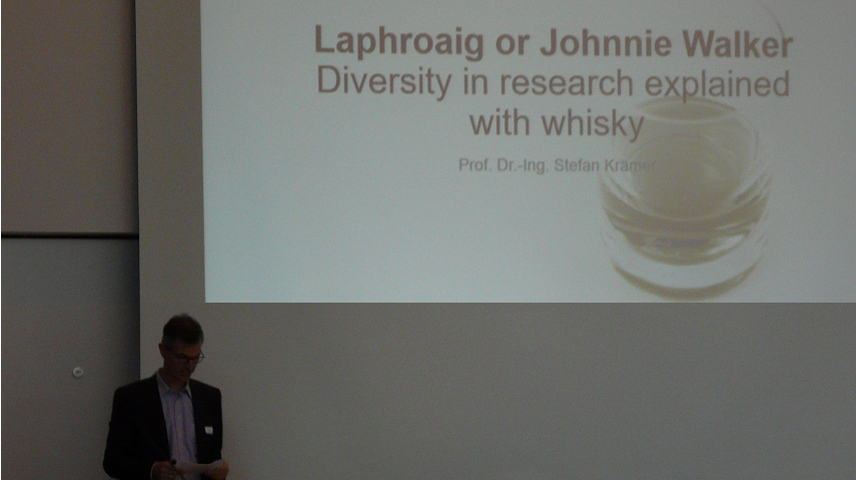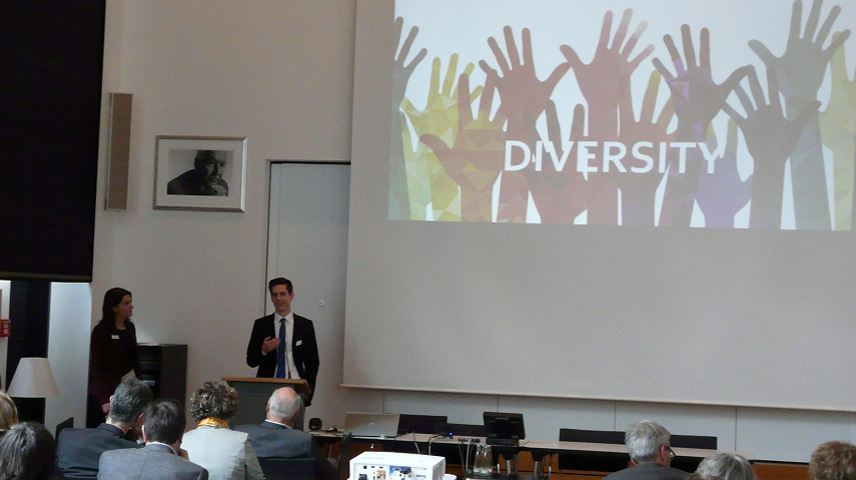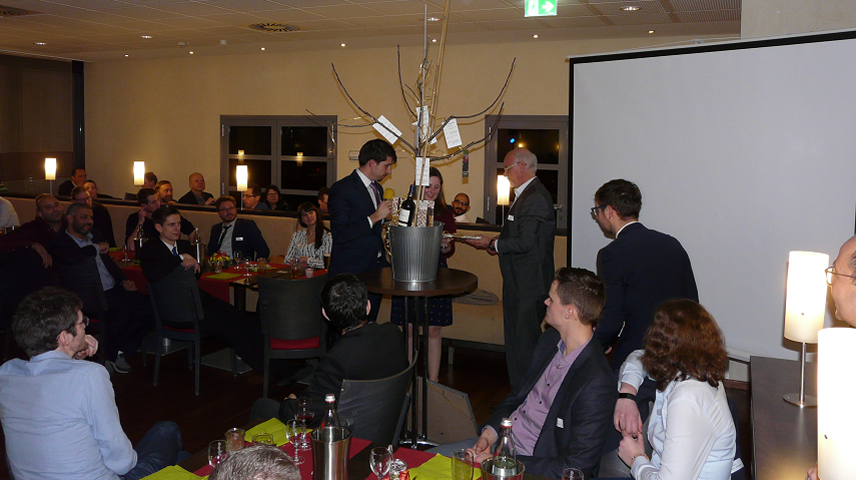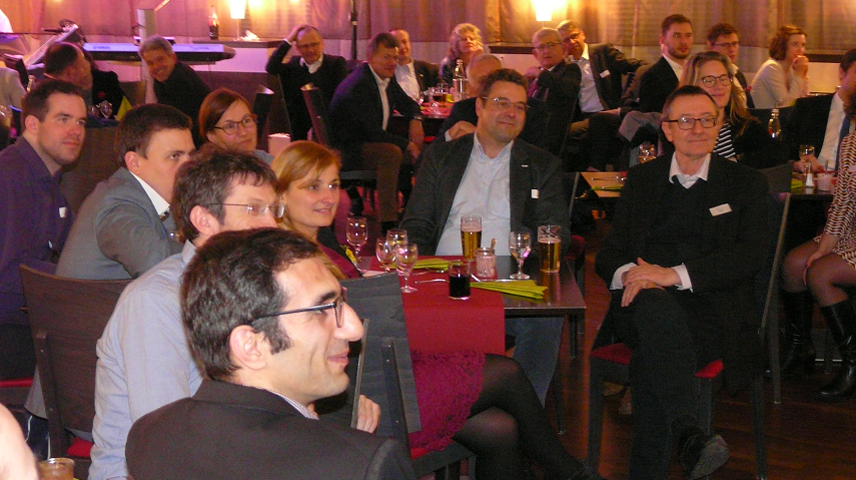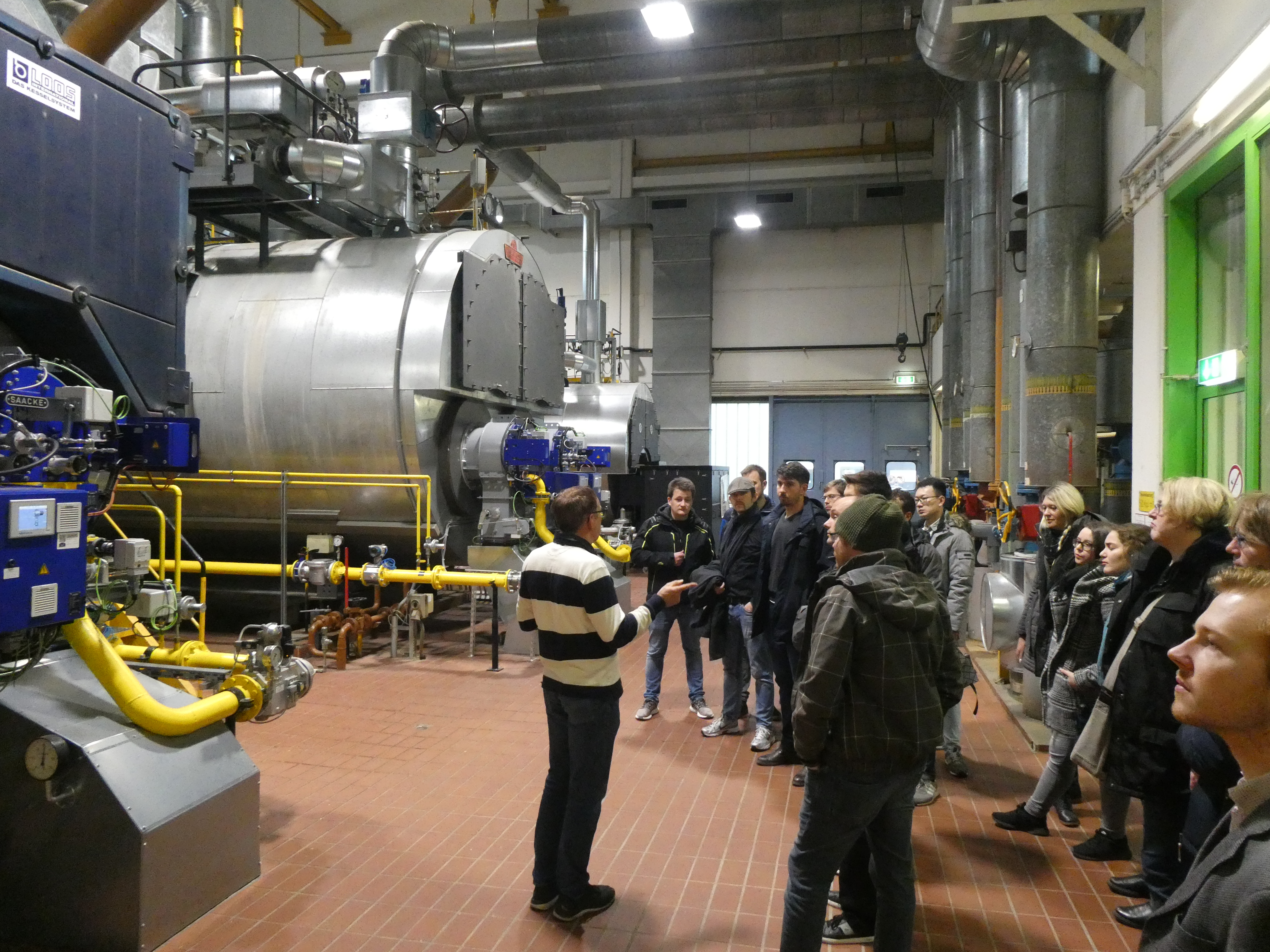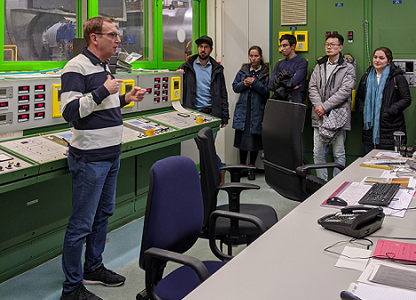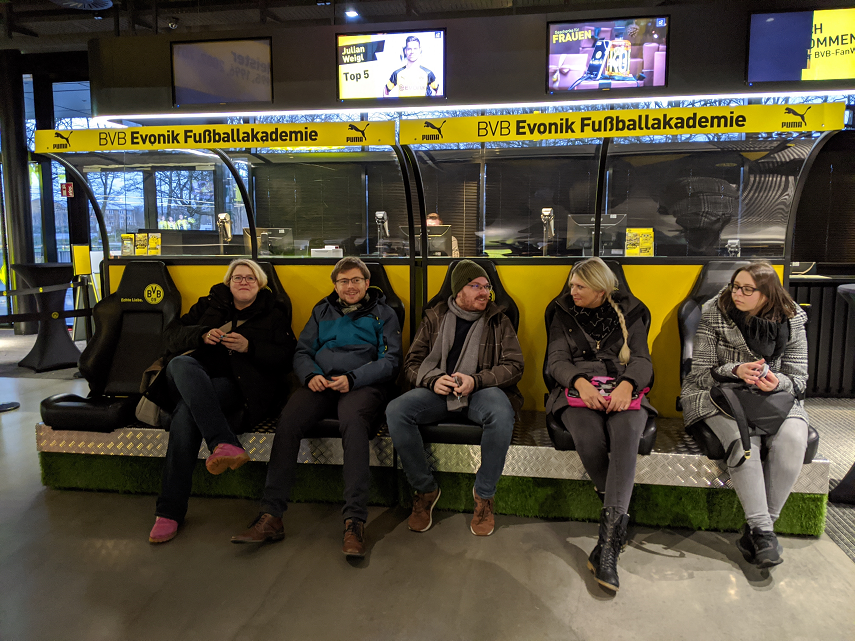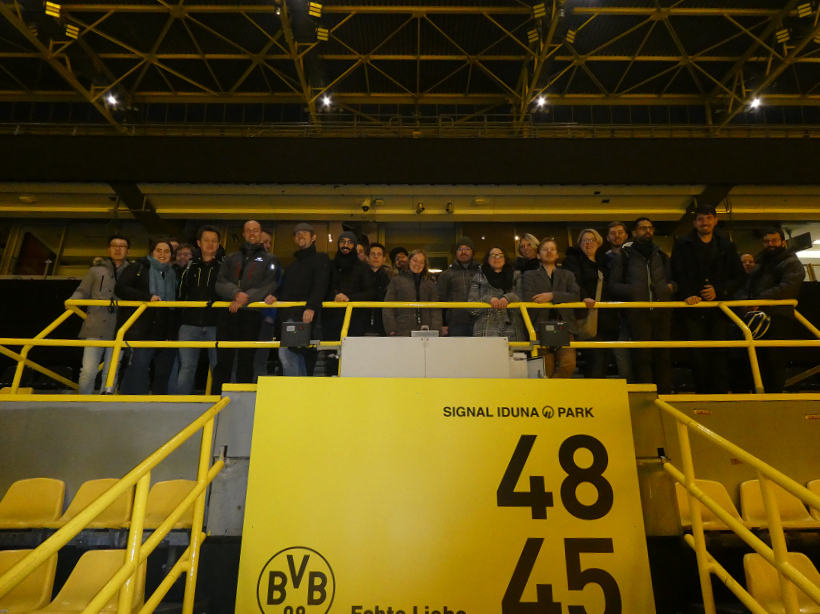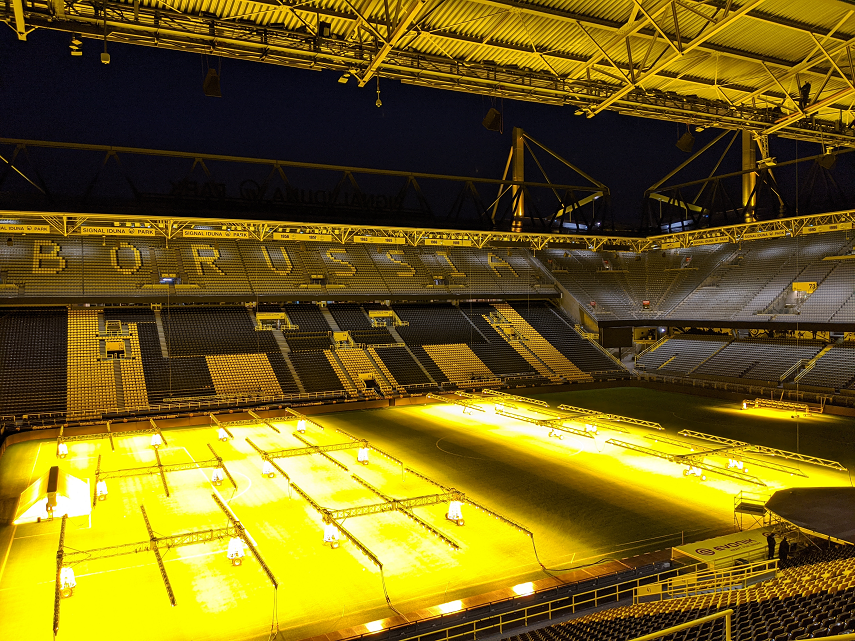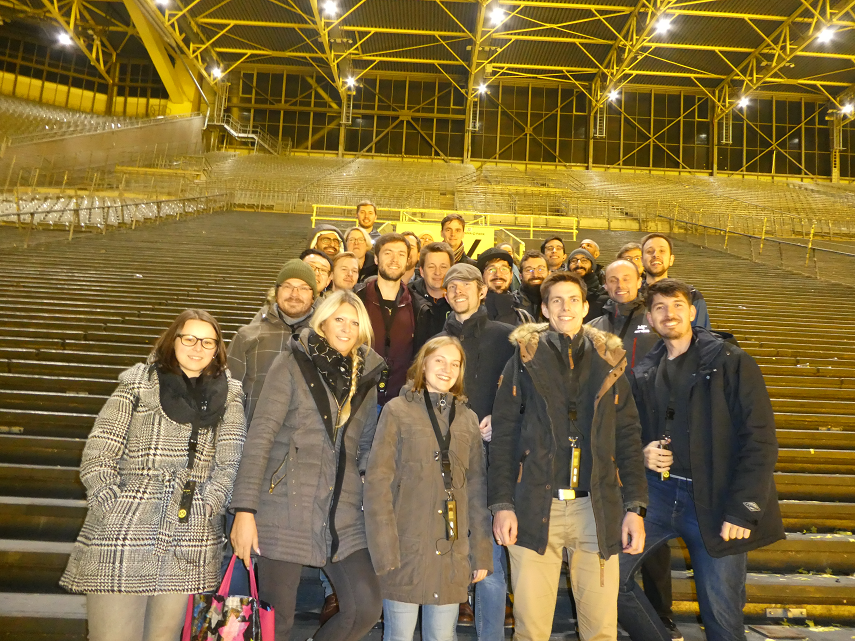 Season's Greetings
Season's Greetings
Season's Greetings
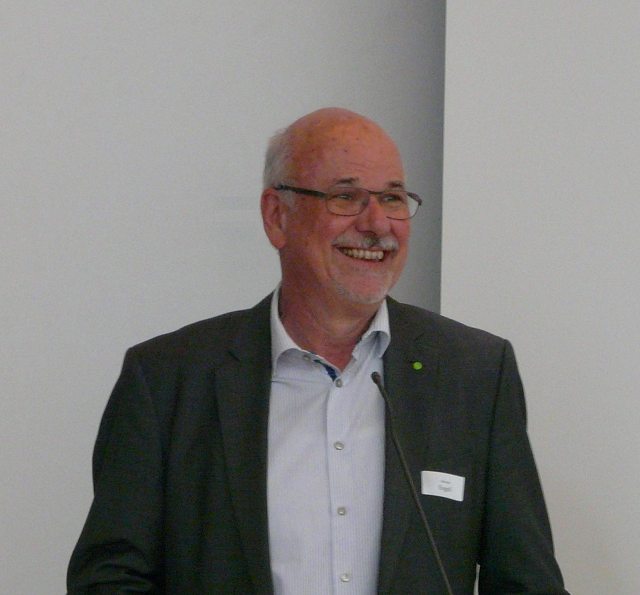
Dear co-workers, project partners, colleagues, friends, and former members of the dyn group,
In 2019, the Department of Biochemical and Chemical Engineering at TU Dortmund celebrated its 50th anniversary with many activities and events. I was particularly happy that in this context TU Dortmund awarded an Honorary Dr.-Ing. Degree to Prof. Costas Pantelides from Imperial College and PSE Ltd., acknowledging both his scientific contributions and his leadership role in developing and rolling out advanced modelling and simulation tools to the process industry worldwide. Prof. Ignacio Grossmann who received the same honor in 2012 gave one of the Jubilee Lectures of the department and several seminars when he visited as a Gambrinus Fellow of TU Dortmund in February. And Nobel Prize winner Frances Arnold gave an enthusiastic Jubilee lecture to a huge audience in the Audimax of TU Dortmund.
During the celebrations, I realized that I have been with the department for more than half of its lifetime, serving in many functions on the department and university level and helping to master also some quite critical times. It was always enjoyable and rewarding to be a professor here. And I think that all past and present members of the dyn group can be proud to have contributed to the standing of the department throughout these years in many ways, e.g. by attracting external funding, the main indicator of success at TU Dortmund, and by reaching out internationally in our projects, study programs, and exchange activities.
I am very happy to report that in November Daniel Hasskerl received the award for the best dissertation in process automation from NAMUR, the International User Association of Automation Technology in the Process Industries. Thanks to his and several others’ hard work, model-based optimizing control was demonstrated successfully at a real pilot-scale plant of the FVT group, made possible by the ERC Advanced Investigator Grant MOBOCON.
Since this summer, we are part of the consortium that has prepared a large proposal (KEEN) on the application of artificial intelligence in the process industries. As it was positively evaluated, we now look forward to future collaborations with several industrial partners on this topic. In the 1990’s we had already done some nice work on the use of neural nets and fuzzy logic in process control that however at that time did not gain much interest from industry. Now, 20 years later, the AI wave rolls again, this time maybe with a bigger impact.
2019 was another successful year for us, and I would like to thank all group members, project partners and colleagues for the pleasant and rewarding collaboration! I wish you enjoyable holidays and a successful and happy year 2020!
Sebastian Engell
dyn @ PAAT 2019
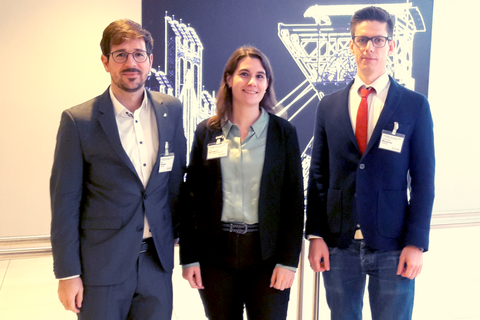 From November 11th to 12th, 2019, the former group member and PhD candidate Corina Nentwich and the PhD students Lukas Samuel Maxeiner and Simon Wenzel represented the DYN at the PAAT2019
(Jahrestreffen der ProcessNet-Fachgemeinschaften “Prozess-, Apparate- und Anlagentechnik” unterstützt durch “Sustainable Production, Energy and Resources”) in Dortmund, Germany.
Process technology, apparatuses, and plant engineering for sustainable and competitive production were in the focus of this year's annual meeting. Over 200 chemical engineers, plant constructors,
process engineers, and technical chemists from science and industry had the opportunity to present research results, discuss requirements from industrial practice, and jointly develop solutions for
new processes in the chemical process industries and other sectors.
They DYN contributed the following talks to the program:
From November 11th to 12th, 2019, the former group member and PhD candidate Corina Nentwich and the PhD students Lukas Samuel Maxeiner and Simon Wenzel represented the DYN at the PAAT2019
(Jahrestreffen der ProcessNet-Fachgemeinschaften “Prozess-, Apparate- und Anlagentechnik” unterstützt durch “Sustainable Production, Energy and Resources”) in Dortmund, Germany.
Process technology, apparatuses, and plant engineering for sustainable and competitive production were in the focus of this year's annual meeting. Over 200 chemical engineers, plant constructors,
process engineers, and technical chemists from science and industry had the opportunity to present research results, discuss requirements from industrial practice, and jointly develop solutions for
new processes in the chemical process industries and other sectors.
They DYN contributed the following talks to the program:
- Gemeinsame Optimierung von Anlagenverbünden ohne Austausch sensitiver Informationen – geht das? S. Wenzel; L. Maxeiner; S. Engell
- Preisbasierte Optimierung des Einkaufs technischer Gase. R. Lemoine; C. Maul; L. Maxeiner; S. Engell
- Overcoming the modeling bottleneck – Effiziente MILP Modellierung von Verbundstandorten und deren Logistik. L. Maxeiner; S. Wenzel; Y. Misz; S. Engell
- Optimierung chemischer Prozesse unter Verwendung von Surrogatmodellen. C. Nentwich; S. Engell
dyn @ IJCNN 2019
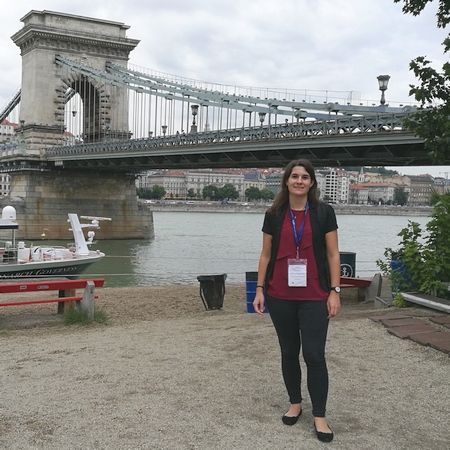 From July 14th to 19th, 2019, Corina Nentwich represented the DYN at the IEEE International Joint Conference on Neural Networks (IJCNN 2019) in Budapest, Hungary.
She presented the following paper in her talk:
From July 14th to 19th, 2019, Corina Nentwich represented the DYN at the IEEE International Joint Conference on Neural Networks (IJCNN 2019) in Budapest, Hungary.
She presented the following paper in her talk:
- C. Nentwich, C. Varela and S. Engell: Optimization of chemical processes applying surrogate models for phase equilibrium calculations
dyn @ the 5th IEEE International Symposium on Systems Engineering
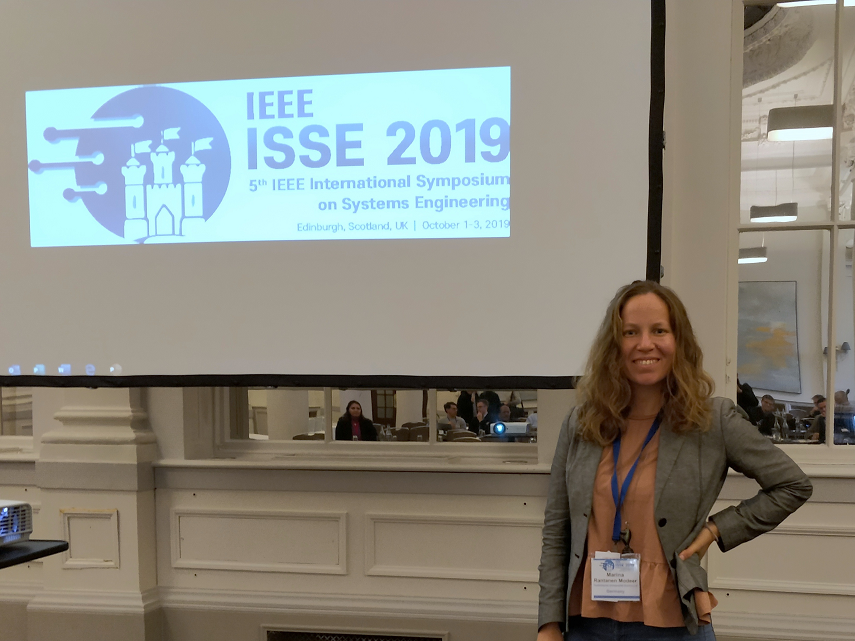 Between 1-3 October 2019, Marina Rantanen-Modeer represented the DYN at the symposium in Edinburgh, Scotland.
Her presented paper proposes generating abstractions of detailed sub-models of Cyber-Physical Systems, and then embedding those abstractions into system-wide models formulated in other formalisms.
Between 1-3 October 2019, Marina Rantanen-Modeer represented the DYN at the symposium in Edinburgh, Scotland.
Her presented paper proposes generating abstractions of detailed sub-models of Cyber-Physical Systems, and then embedding those abstractions into system-wide models formulated in other formalisms.
- M. Rantanen-Modeer and S. Engell: Design and validation of Cyber-Physical Systems through model abstraction
dyn @ ECCE12 2019
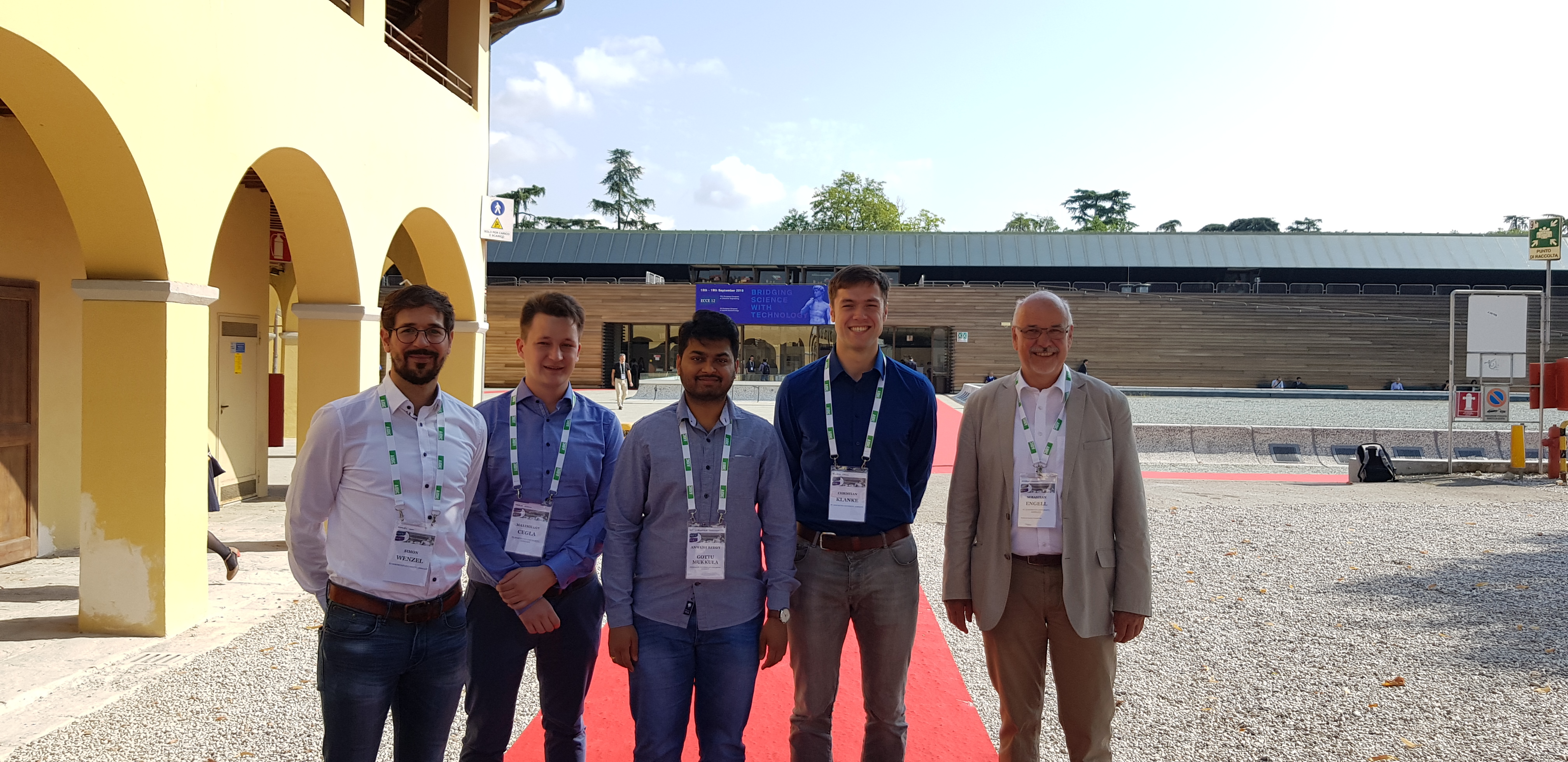 From September 15th to 19th, 2019, several DYN PhD students presented the following papers:
From September 15th to 19th, 2019, several DYN PhD students presented the following papers:
- K. Klanke, L. Maxeiner and S.Engell: Price-based coordination of shared resources with external suppliers
- M. Cegla, T. Janus, S. Tlatlik, P. Krause, T. Bäck, A. Gottschalk and S. Engell: Flexible and efficient process synthesis and optimization based on Aspen Plus simulations - MTBE production case study
- A. Gottu Mukkula and S.Engell: Application of Iterative Real-time Optimization in an Intensified Continuous Plant at Pilot Plant Scale
- S. Wenzel, Y.Misz, K. Rahimi-Adli, B. Beisheim and S.Engell: Optimal Site-Wide Planning of A NH3 Network – A Study on Uncertain Logistic Constraints
- A. Elekidis, V. Yfantis, F. Corominas, M. Georgiadis, S. Engell: Optimal Production Scheduling in the Packaged Consumer Goods Industry
- J. Pitarch, C. Jasch, M. Kalliski, Y. Misz, M. Marcos, C.Prada, G. Seyfriedsberger, S. Engell: Energy-efficient Operation of a Multi-unit Recovery Cycle in EU’s largest Viscose Fiber Plant
- E.Leo, K.Rahimi-Adli, B.Beisheim, R.Gesthuisen and S.Engell: Applying Stochastic Optimization to Demand-Side Management of a Combined Heat and Power Plant
DYN @ ECC 2019
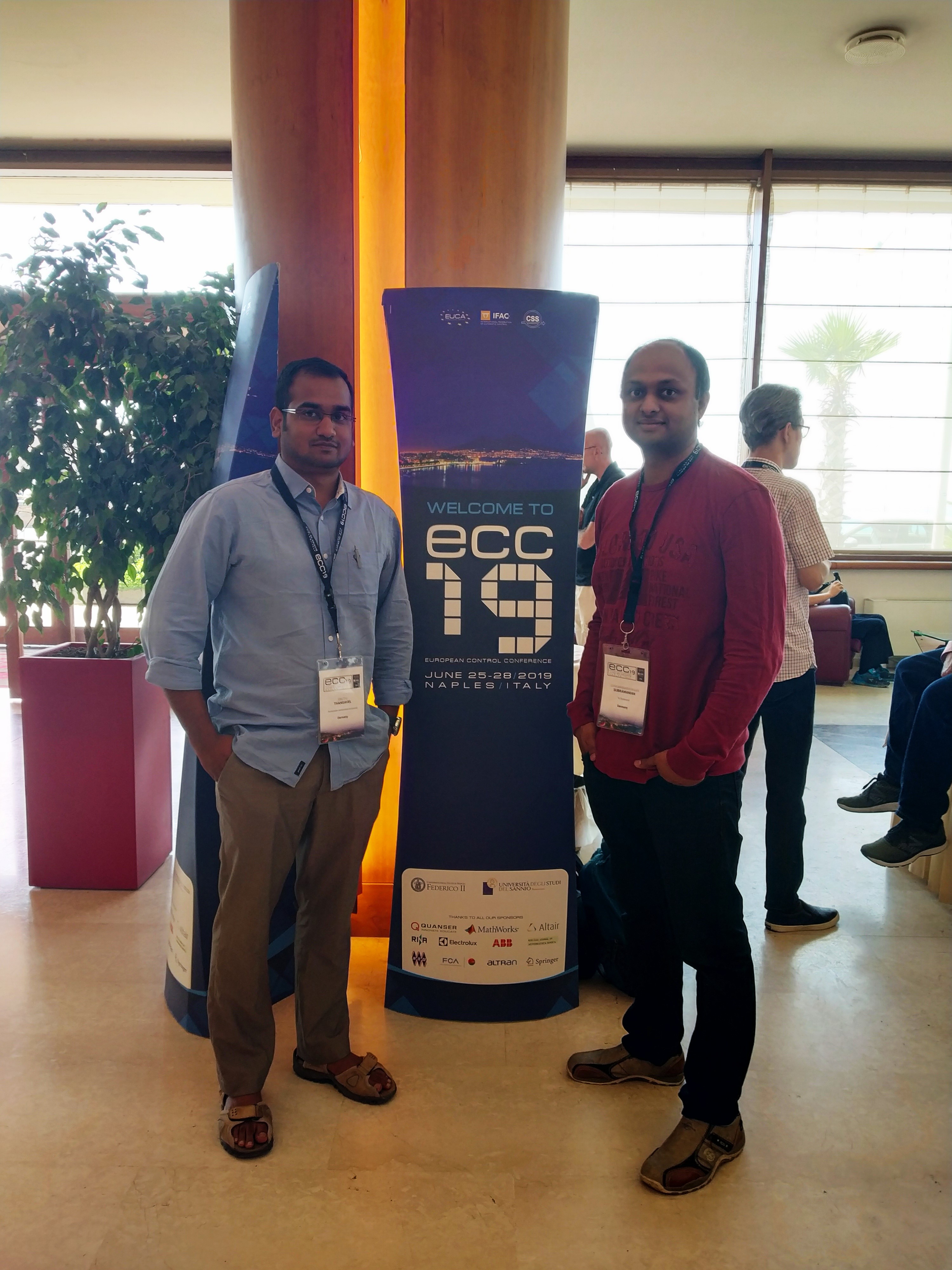 The PhD students, Sakthi Thangavel and Sankaranarayanan Subramanian, represented the DYN at the European Control Conference in Napoli, Italy from the July 25th to 28th. They presented the following papers:
The PhD students, Sakthi Thangavel and Sankaranarayanan Subramanian, represented the DYN at the European Control Conference in Napoli, Italy from the July 25th to 28th. They presented the following papers:
- S. Subramanian, M., Aboelnour and S. Engell, Robust Tube-Enhanced Multi-Stage Output Feedback MPC for Linear Systems with Additive and Parametric Uncertainties
- S., Thangavel, S. Subramaianan, R. Paulen and S. Engell, Robust Multi-Stage NMPC under Structural Plant-Model Mismatch without Full-State Measurements
dyn @ the 10th IFAC Symposium on Intelligent Autonomous Vehicles
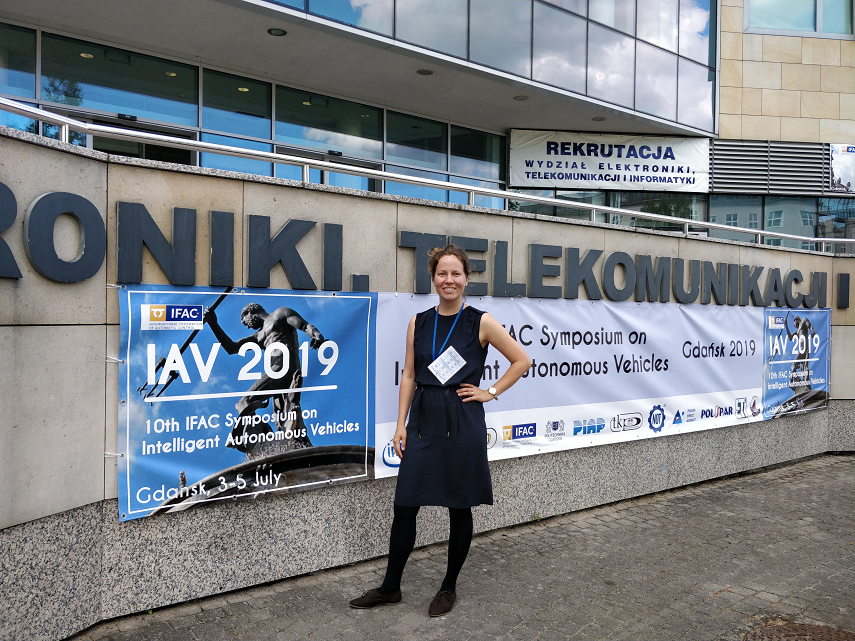 The IFAC Symposium on IAV took place in Gdansk, Poland, between 3-5 July 2019. Marina Rantanen-Modeer represented the group with a paper which proposed
a filter for the preprocessing of raw position data before the trilateration-based position calculation of an RFID-based positioning system for an experimental pipe-less plant.
The IFAC Symposium on IAV took place in Gdansk, Poland, between 3-5 July 2019. Marina Rantanen-Modeer represented the group with a paper which proposed
a filter for the preprocessing of raw position data before the trilateration-based position calculation of an RFID-based positioning system for an experimental pipe-less plant.
- M. Rantanen-Modeer, S. Vette, S. Engell: Compensating Signal Loss in RFID-Based Localization Systems
dyn at the 22nd International Conference on Process Control
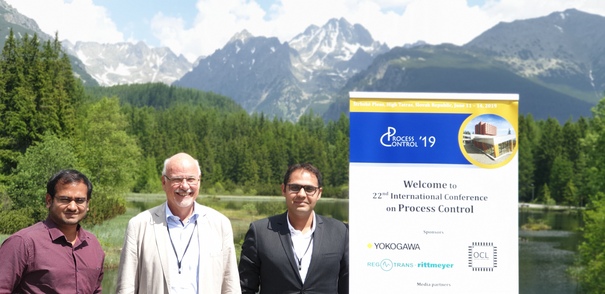 From June 11-14, 2019, Prof. Sebastian Engell and the research associates Sakthi Thangavel and Afaq Ahmad attended the 22nd International Conference on Process Control in Štrbské Pleso, Slovak Republic.
Prof. Dr.-Ing. Sebastian Engell was invited to give a plenary talk with title ‘Robust NMPC by Multistage Optimization - Basic Idea and Further Developments’.
Further, the following contributions were presented:
From June 11-14, 2019, Prof. Sebastian Engell and the research associates Sakthi Thangavel and Afaq Ahmad attended the 22nd International Conference on Process Control in Štrbské Pleso, Slovak Republic.
Prof. Dr.-Ing. Sebastian Engell was invited to give a plenary talk with title ‘Robust NMPC by Multistage Optimization - Basic Idea and Further Developments’.
Further, the following contributions were presented:
- Handling Plant-model Mismatch Using Multi-stage NMPC with Model-error Model Thangavel, S. and Engell, S.
- Model Adaptation with Quadratic Approximation in Iterative Real-Time Optimization Ahmad, A.; Gottu Mukkula, A.R. and Engell, S
dyn @ DYCOPS, IN FLORIANOPOLIS, BRAZIL
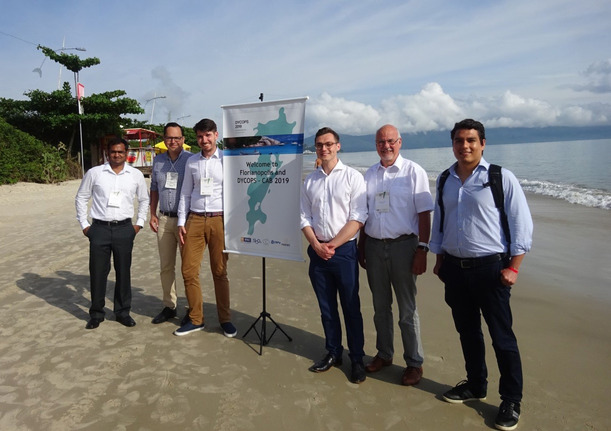 From April 23th to 26th, 2019, part of the DYN group attended the 12th IFAC Symposium on Dynamics and Control of Process Systems, including Biosystems in Florianopolis, Brazil.
DYCOPS symposium takes place every three years and has a long history initiated in 1986 in Bournemouth (UK). The scope of the conference is the analysis and control of process systems. In this year, the
following contributions were presented:
From April 23th to 26th, 2019, part of the DYN group attended the 12th IFAC Symposium on Dynamics and Control of Process Systems, including Biosystems in Florianopolis, Brazil.
DYCOPS symposium takes place every three years and has a long history initiated in 1986 in Bournemouth (UK). The scope of the conference is the analysis and control of process systems. In this year, the
following contributions were presented:
- Economics Optimizing Control with Model Mismatch Based on Modifier Adaptation, Reinaldo Hernández and Sebastian Engell
- Extension of the Do-MPC Development Framework to Real-Time Simulation Studies, Alexandru Tatulea-Codrean, Clemens Lindscheid, Rafael Farrera Saldana and Sebastian Engell
- Robust NMPC Using a Model-Error Model with Additive Bounds to Handle Structural Plant-Model Mismatch, Sakthi Thangavel, Sankaranarayanan Subramanian and Sebastian Engell
- Demand Side Management Scheduling Formulation for a Steel Plant Considering Electrode Degradation, Giancarlo Dalle Ave, Jesus Hernández, Luca Onofri, Iiro Harjunkoski and Sebastian Engell
dyn Members 2019
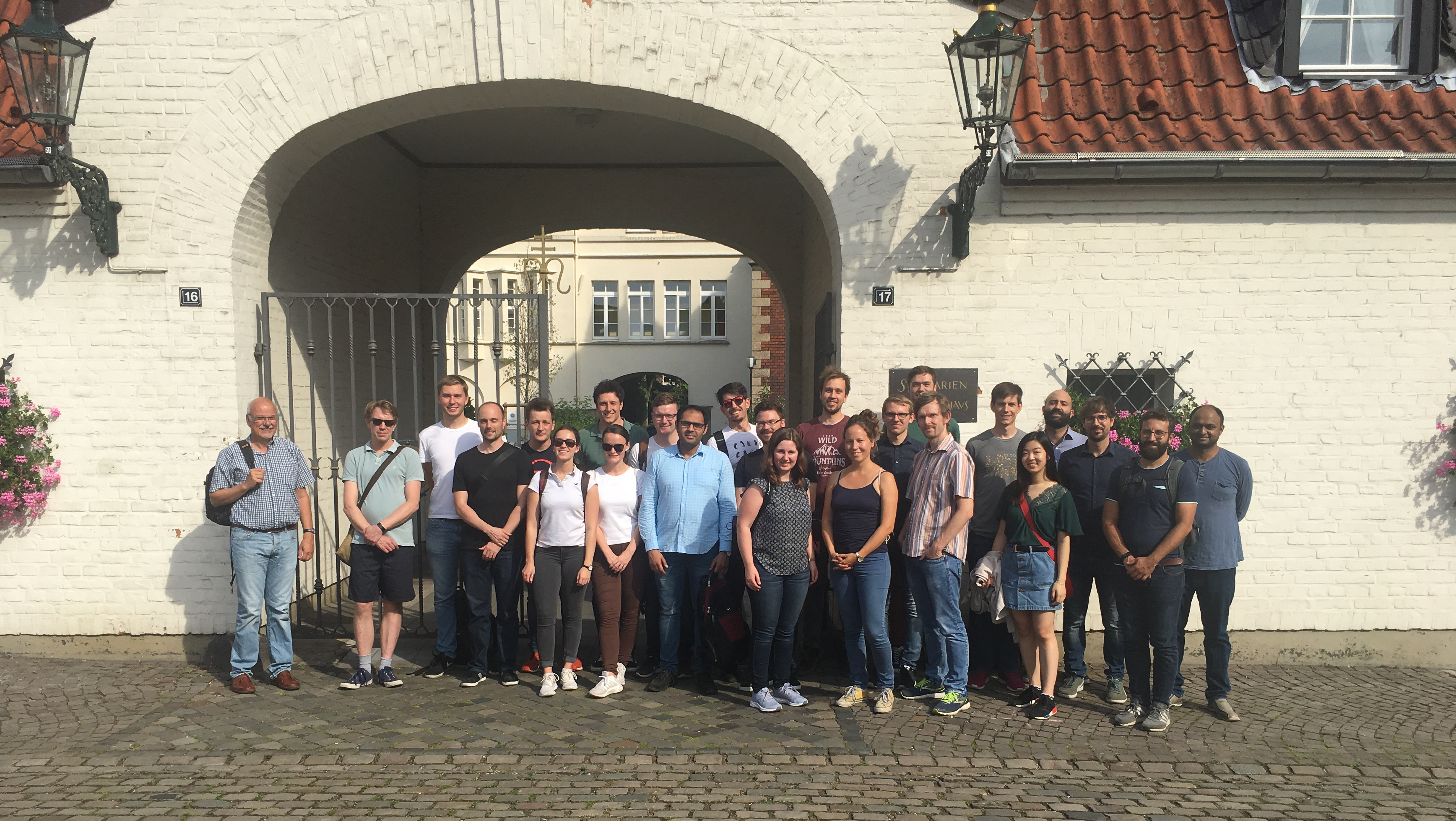
We all would like to thank our partners, colleagues, students and alumni for their support and the fruitful collaboration all throughout 2019. We wish you a bright, happy and successful year 2020!
Farewell to four of our colleagues

Corina Nentwich
Corina started her research career with the dyn group in December 2014. She has been focusing on surrogate modelling of phase equilibrium calculations and on the application in process simulation and optimization. She is very happy that this interesting topic will also be part of her new position in the industry. Since September 2019, Corina is employed at the Evonik Technology & Infrastructure GmbH, in the Digital Process Technologies group in Marl. She will always think back to the days spent at the dyn, especially for the open discussions and the work atmosphere. And she reckons that she will miss teaching.

Simon Wenzel
Simon did his BSc in a dual study program in the textile industry and in Krefeld at the Hochschule Niederrhein, where he focused on chemical technology. After his bachelor thesis at P&G he studied Process Systems Engineering in Dortmund and was absorbed quite quickly by the DYN, where he started work as a Research Associate in December 2014. Simon was very active in both teaching and research projects. His research interests are real-time optimization, site-wide optimization with MILP models, and distributed optimal shared resource allocation with market-like coordination algorithms, which he got to exercise in EU projects DYMASOS and CoPro. Simon will be employed at the Evonik Technology & Infrastructure GmbH as of January 2020. He thinks of the DYN as a sort of a large family that lives spread across the industrial spectrum and meets often at their family meetings like the PAAT, the ProcessNet, the Namur HS, or at the birthdays of the DYN group.

Simone Herchenröder
Simone started her work at the group in 2010, as Prof. Engell's secretary. Her favorite day of the week is Monday and she will never skip the dyn breakfast to see all of her favourite researchers, even if she now works for the Dean’s office (since the 1st November). She remembers fondly the many students and colleagues she has had the pleasure of working with during the last 9 years. When her daughters grow up she hopes they, too, will study at TU Dortmund.

Vassilios Yfantis
Vassilios Yfantis studied Chemical Engineering at TU Berlin and TU Dortmund. After his Master Thesis at Bayer AG in Leverkusen on production scheduling he joined the group of Process Dynamics & Operations at TU Dortmund to work on planning and scheduling in the H2020 project CoPro. Since April 2019 he is working at TU Kaiserslautern on the integration of Demand-side Management and Model Predictive Control.
New dyn Members

Sandra Isabel Gröning
Isabel is the department's newest addition, as she takes over secretary tasks from Simone and Lisa. She started work at TU Dortmund in October 2019, where she is quickly adapting to the dyn life. She has had training as assistant tax consultant before joining the group. Isabel is also a proud mother of two children, ages 5 and 8. Welcome to the dyn , Isa!

Robin Semrau
Robin Semrau received his B.Sc. in Chemical Engineering from the Paderborn University in 2017. In 2019, he finished his Master in Chemical Engineering at TU Dortmund University. The topic of his Master’s thesis was „Validation of an Output-feedback NMPC Scheme for a CFI Polymerization Reactor“. Since May 2019, he is working as a research associate on the process control of co-polymerization and crystallization processes.

Yannik-Noel Misz
Yannik-Noel Misz joined the group in November. He got his bachelor degree in biochemical engineering at TU Dortmund and has been involved in the group’s research since his bachelor’s thesis. For his master’s degree he took the step into the Automation and Robotics program focusing his profile on process automation. He now works on optimization of large scale systems with limited resources.

Christian Klanke
Christian joined the dyn group in February 2019 as a research associate. During his biochemical engineering master studies, he was a working student with the engineering service provider UTEK at the Bayer site in Bergkamen. Afterwards, he conducted his Master thesis entitled “Price-based coordination of shared resources with external suppliers” at the group and received his Master's degree in December 2018. Currently, Christian is researching topics of industrial scheduling applications within the CoPro project and beyond. Apart from that, he declares himself a true Dortmunder, who is passionate about football and has played for a local club ever since he was a child.

Jens Ehlhardt
Jens Ehlhardt studied Chemical Engineering at TU Dortmund. He completed his bachelor's thesis "Experimental studies on innovative visualization concepts for resource efficiency indicators" and his master's thesis "Realisation of NMPC in a lab-scale polymerisation reactor" at the Group of Process Dynamics and Control. During his studies, he spent a semester at the Hong Kong University of Science and Technology. He joined the group in December 2019.

Yehia Abdelsalam
Yehia obtained a Bachelor's in 2009 in Information Engineering and Technology (IET), with a major in communications from the German University in Cairo (GUC). He then worked in the oil and gas industry for 7 years as an instrumentation and control engineer, after which he decided to return to university again in 2016. Yehia joined the program Automation and Robotics in October 2016, and finished in December 2018. He started his research career at the DYN in March 2019, where he is working on stabilizing formulations for model predictive control for plants with parametric uncertainties and additive disturbances. Currently, the focus of his research is on adaptive MPC schemes as well as stabilizing economic MPC for plants with structural uncertainties. Although he was once sure to have left the chemical industry behind him, Yehia now finds the challenges of MPC, and APC in general, within this field to be amongst some of the most interesting.
Journal Articles 2019
Conference Articles 2019
Master's Theses 2019
Bachelor's Theses 2019
Prof. Engell's 65th Birthday
On the 8th of March, we had the pleasure to celebrate the 65th birthday of prof. Engell. His family, friends, co-workers and PhD students gathered together for discussions and presentations on the topic "Diversity as a Resource", a topic that certainly characterized prof. Engell's scientific carrier. The following presentations were given:
- "Less is more or less is a bore? Looking back on my research design" by Sebastian Engell (dyn@TUDO)
- "Lephroig or Johnny Walker ― Diversity in research explained with whiskey" by Stefan Krämer (Bayer AG, Leverkusen)
- "When is “more” more? Benefits and limitations of diversity in multi-partner projects" by Svetlana Klessova (inno TSD, Nice, France)
- "Diversity as a resource for knowledge-generation in the reality of a scientific research group― a model-based analysis" by Corina Nentwich and Lukas Maxeiner (dyn@TUDO)
- "Connecting systems, connecting people, connecting disciplines" by Kai Dadhe (Evonik Infrastructure and Services, Hanau)
- "Language is everywhere ― Notes on interdisciplinarity from a linguist‘s point of view" by Uta Quasthoff (Emerita, TU Dortmund)
- "Obstacles and opportunities related to diversity in academic education ― personal experiences" by Kirsten Lindner-Schwentick (BCI@TUDO)
Fresh dyn doctors
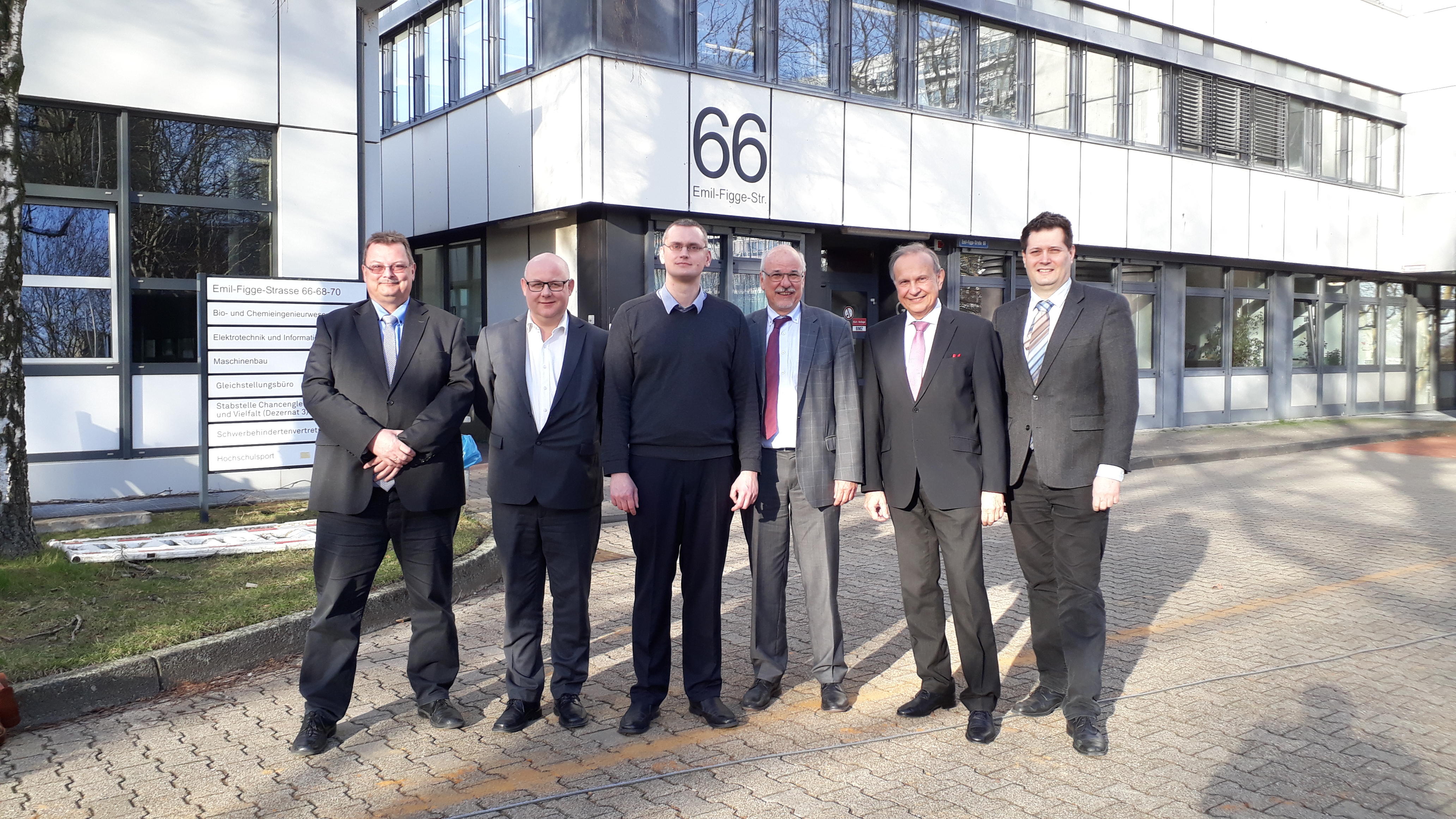 From left to right: Prof. G. Schembecker, Prof. J. B. Jorgensen, D. Haßkerl, Prof. S. Engell, Prof. A. Gorak, Prof. M. Thommes
From left to right: Prof. G. Schembecker, Prof. J. B. Jorgensen, D. Haßkerl, Prof. S. Engell, Prof. A. Gorak, Prof. M. Thommes
2019 was a special year for Daniel Haßkerl, who had the chance to successfully defend his PhD thesis.
We congratulate the new doctor on his hard work and dedication and wish him all the best in his future endeavours, scientific or otherwise!
- Daniel Haßkerl: "Economic Performance Optimization by Direct Optimizing Control Applied to Reactive Distillation Processes", 25.02.2019
NAMUR Award for Daniel Haßkerl
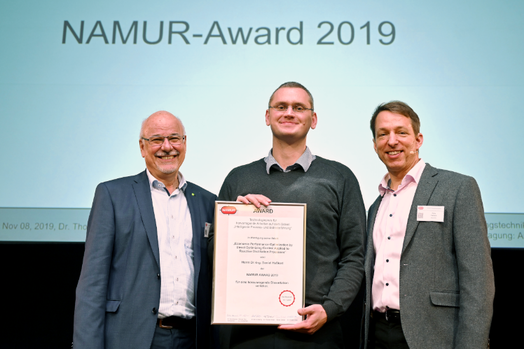 From the left: Prof. Dr.-Ing. Sebastian Engell, 2019 NAMUR-Award Winner Dr.-Ing. Daniel Haßkerl (now with BASF), and the Chairman of the Board of NAMUR Dr.-Ing. Felix Hanisch, Bayer AG, also a DYN PhD graduate. Source: NAMUR
From the left: Prof. Dr.-Ing. Sebastian Engell, 2019 NAMUR-Award Winner Dr.-Ing. Daniel Haßkerl (now with BASF), and the Chairman of the Board of NAMUR Dr.-Ing. Felix Hanisch, Bayer AG, also a DYN PhD graduate. Source: NAMUR
On the NAMUR Annual General Meeting 2019 in Bad Neuenahr, DYN alumni Dr.-Ing. Daniel Haßkerl has been awarded the NAMUR-Award 2019 for his dissertation “Economic Performance Optimization by Direct Optimizing Control Applied to Reactive Distillation Processes”.
NAMUR is the international user association of automation technology in the process industries. The main goal of the association is to further develop the field of process automation by gathering
expertise and proposing new ideas across companies. The Annual General Meeting of NAMUR is a congress for members and invited guests of NAMUR. It is attended by about 650 participants, predominantly
from the industry. NAMUR awards one PhD student per year for his or her outstanding contribution that addresses intelligent process control and operational management or other elements of process automation. We congratulate our former colleague Daniel Haßkerl for winning this outstanding award!
dyn winter trip
This year the winter excursion focused on two of Dortmund's highlights: the TU and the Signal Iduna Park. The day started off with a very interesting visit of the TU Dortmund power plant, where we learned about the challenges of supplying the entire campus with electricity, heat and cooling capacity. The visit included tours through the engine rooms and the control rooms, as well as a walk through the infamous subterranean tunnel network of the university. After a well-deserved break for Glühwein and cookies, the day continued with a tour of the BVB stadium, where we established that we would do well on the Südtribune. Later on, the evening continued with a pleasant dinner at the Hövels restaurant in the city.
dyn summer trip
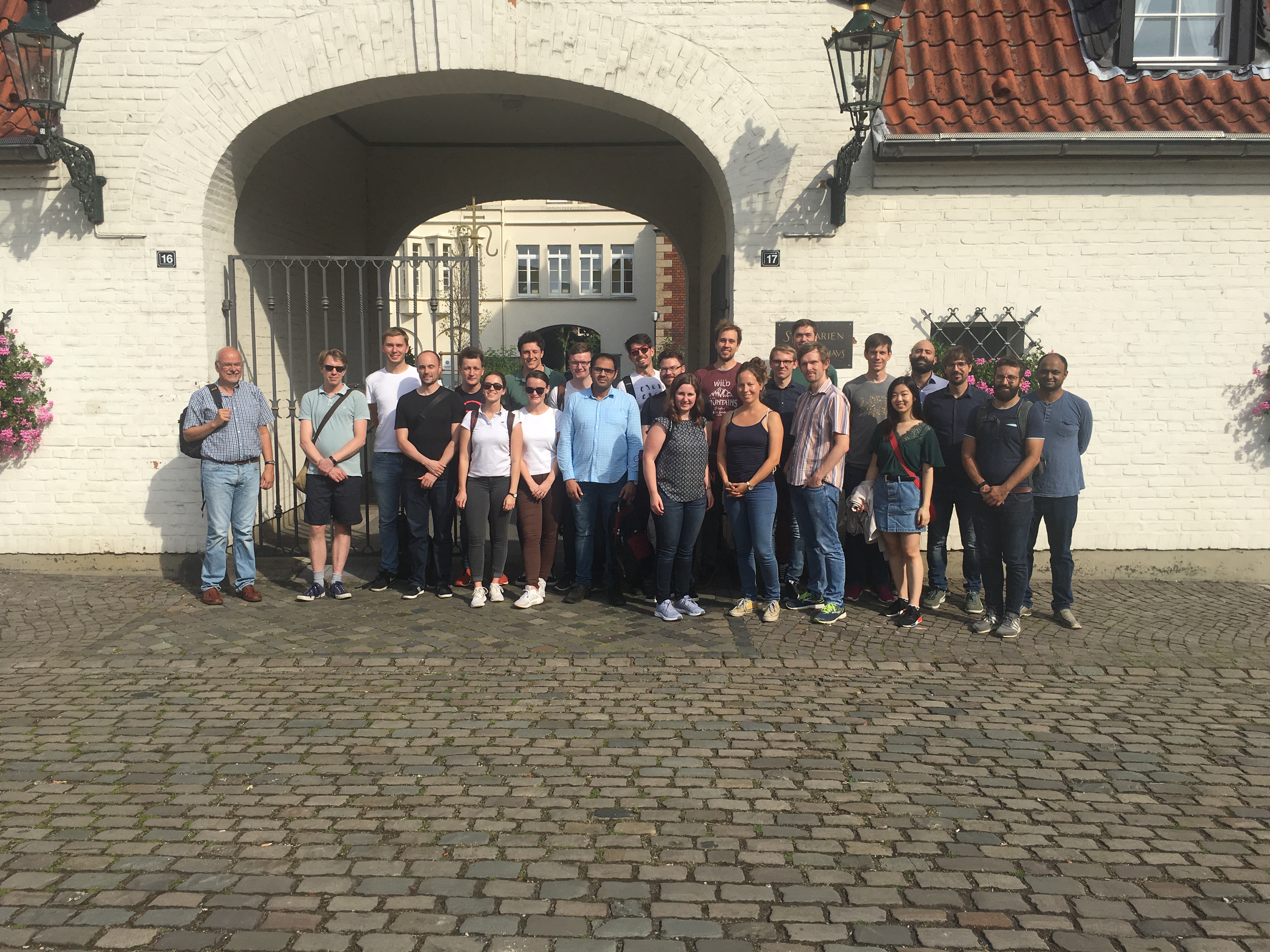 This year's summer trip taught the DYN group about the production process of carbonate ("The stuff diamonds are moade of") at the KG Deutsche Gasrußwerke GmbH & Co in Dortmund.
Afterwards, we visited one of the oldest parts of the City of Düsseldorf, Kaiserwerth. We came back to the city center of Düsseldorf, where we spent the afternoon with chats
and drinks, with a panorama boat tour on the river Rhein.
This year's summer trip taught the DYN group about the production process of carbonate ("The stuff diamonds are moade of") at the KG Deutsche Gasrußwerke GmbH & Co in Dortmund.
Afterwards, we visited one of the oldest parts of the City of Düsseldorf, Kaiserwerth. We came back to the city center of Düsseldorf, where we spent the afternoon with chats
and drinks, with a panorama boat tour on the river Rhein.
International Summer Program 2019
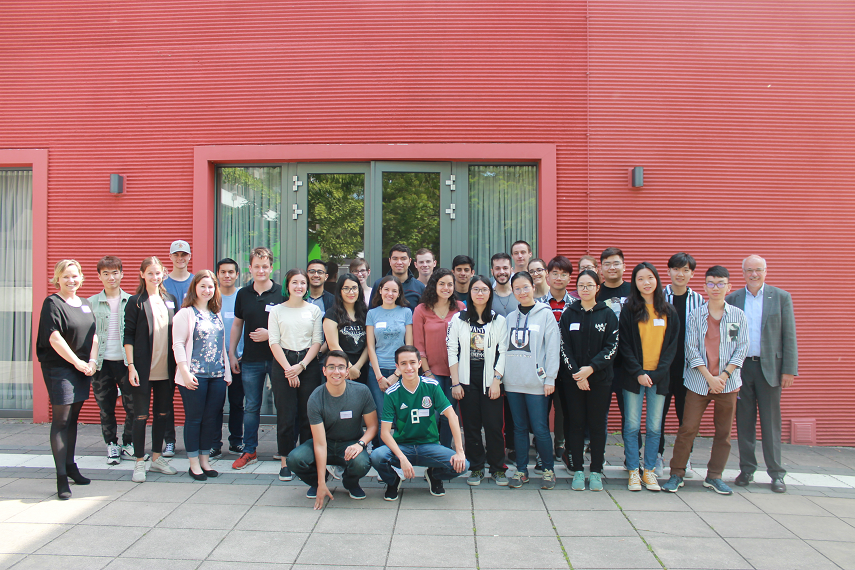 This year, 27 students from our oversea partner universities in Asia and America were welcomed to Dortmund in the 17th edition of the International Summer Program.
The ISP, organized by the DYN chair in close collaboration with the faculty of American Studies and the International Office, has provided the students with bothF an interesting learning environment
for various academic subjects and a balanced cultural program. The participants have given the program best grades for the effort that has been invested which underlines the acceptance and the value
of the program for the international activities of the faculty and of the university.
This year, 27 students from our oversea partner universities in Asia and America were welcomed to Dortmund in the 17th edition of the International Summer Program.
The ISP, organized by the DYN chair in close collaboration with the faculty of American Studies and the International Office, has provided the students with bothF an interesting learning environment
for various academic subjects and a balanced cultural program. The participants have given the program best grades for the effort that has been invested which underlines the acceptance and the value
of the program for the international activities of the faculty and of the university.
Excursion to COVESTRO
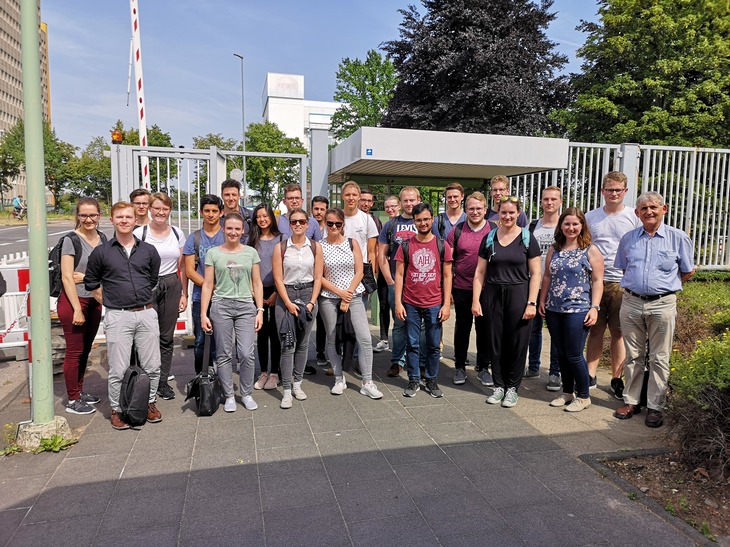 On June 25, 2019, as part of the course "Sicheres und optimiertes Betreiben von Anlagen in der Chemie- und Pharmaindustrie", the students visited the production site of Covestro AG in Leverkusen. The students visited the
pilot plants at Covestro. The day was concluded with some presentations on advanced process control at Covestro.
On June 25, 2019, as part of the course "Sicheres und optimiertes Betreiben von Anlagen in der Chemie- und Pharmaindustrie", the students visited the production site of Covestro AG in Leverkusen. The students visited the
pilot plants at Covestro. The day was concluded with some presentations on advanced process control at Covestro.
dyn at the Science Slam 2019
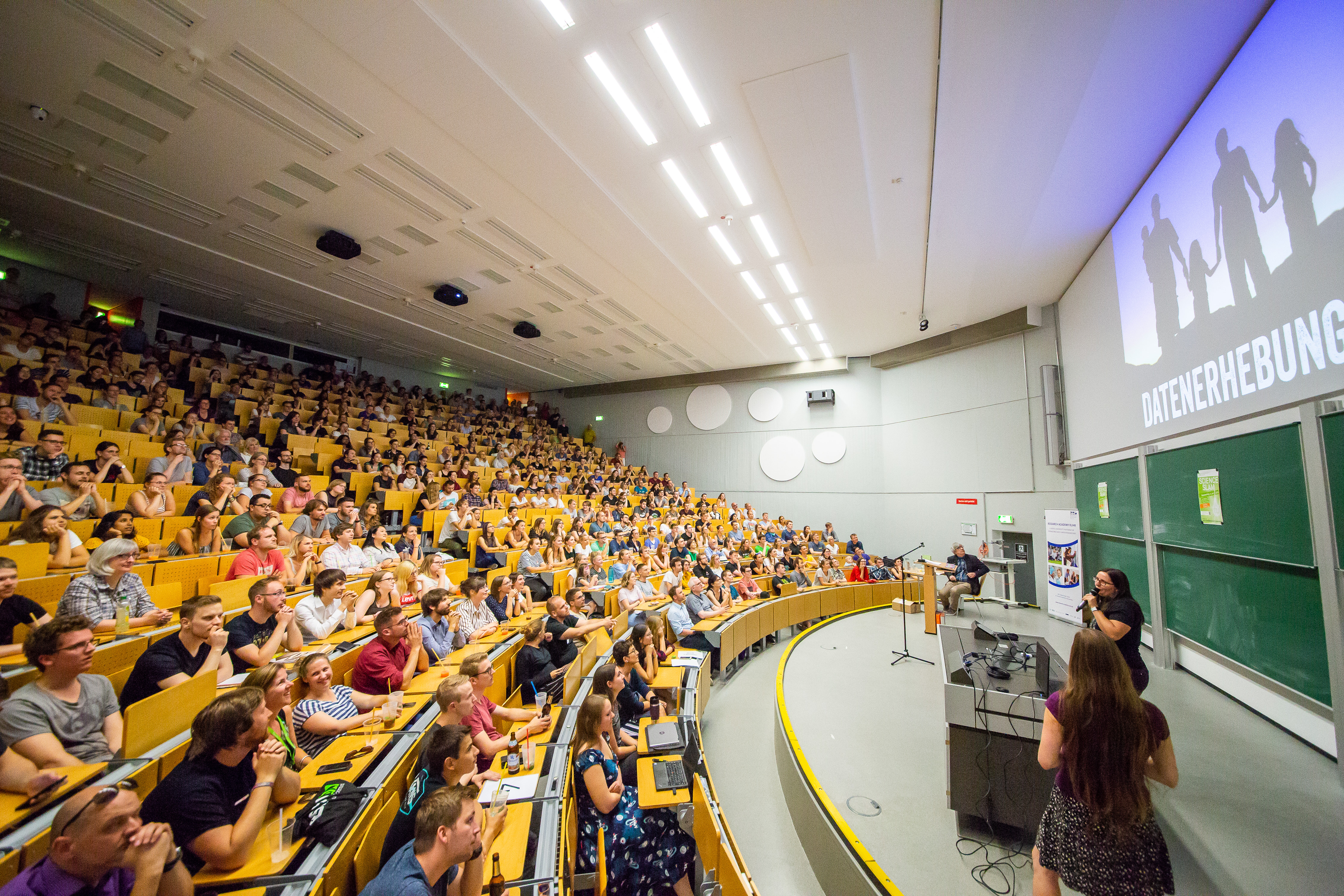
The TU-Dortmund Science Slam is an annually event organized by the Graduate Center to offer junior researchers a platform to present their research to a non-specialist audience and make it visible.
This year the PhD candidate Corina Nentwich gave a very interesting talk entitled "Can an AI write my dissertation?" ("Kann eine KI meine Dissertation schreiben?").
Besides research: the BCI Cup
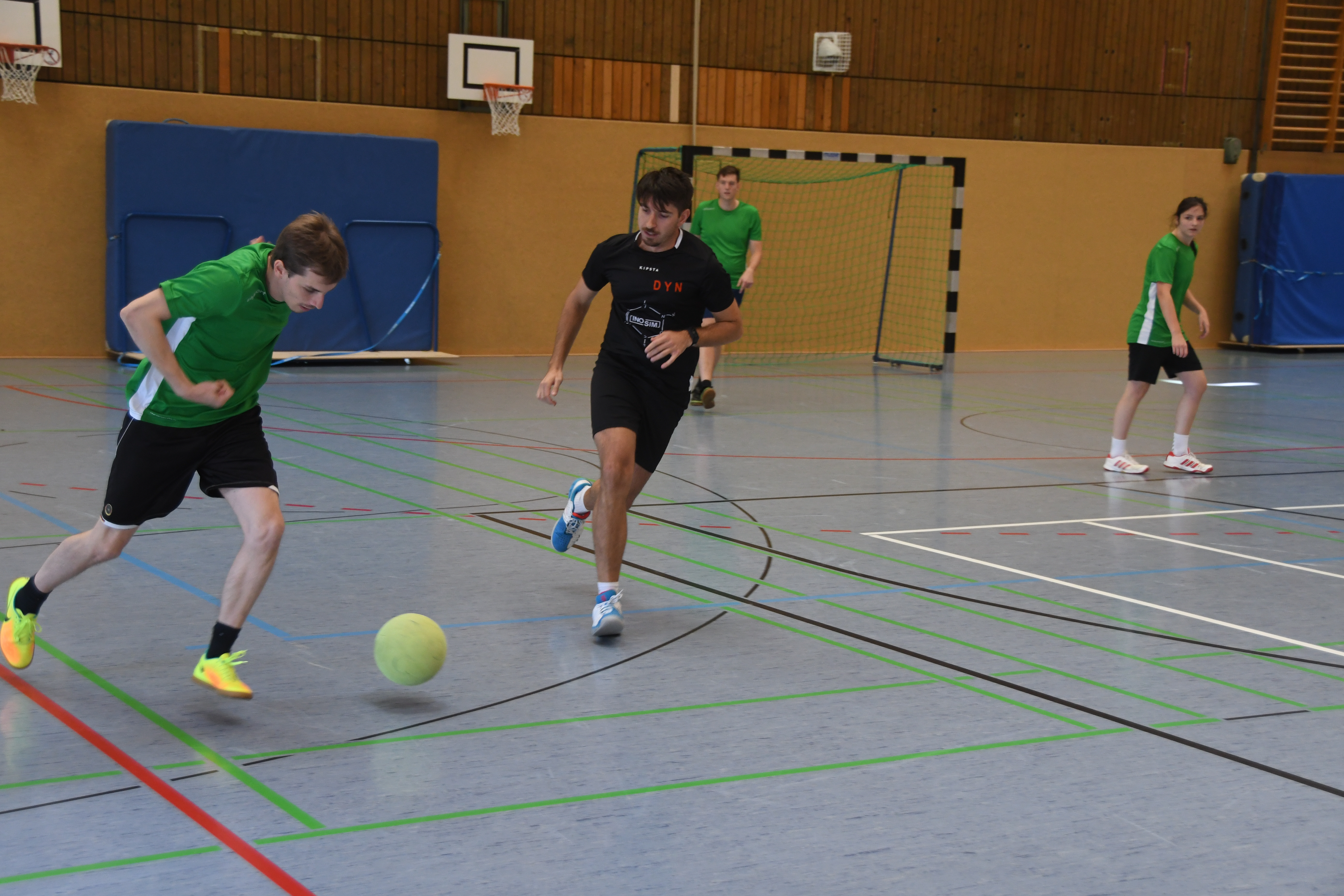
Our DYN football team, the DYNosaurs, participated at the BCI-Cup 2019, the faculty tournament where mixed teams of students and researchers face eachother in fierce competition.
The event took place on the 21th September on the grounds of the TU Dortmund Sportzentrum. This year the DYNosaurs gave their best reaching the semi-finals of the tournament and finishing at the 4th place.
The tournament was a great success for the DYN and we are eager to do better in next year's BCi-Cup!
Further "athletic" endeavours : sport and creativity

On May 22nd, 2019, the Process Dynamics and Operations Group (DYN), had a sensational participation in the annual “Campus-Run” contest at the Technical University of Dortmund.
The DYN Run Club, led by the DYNosaur, participated the annual “Campus-Run” contest of TU Dortmund. Not only the team performed well in the run marathon
of 2.5 km through the TU Dortmund campus, but also, thanks to the creativity of the team, attracted the attention of the audience and the organizing staff in the “Custom competition” contest.
The outstanding custom of the team became the photo attraction to not only many photographers on site, but also the official press “Ruhr Nachrichten”.
Overall, the team successfully took part in the event and gathered more experience for prominent participations in the following years.
PSE project group presentation at MERCK.
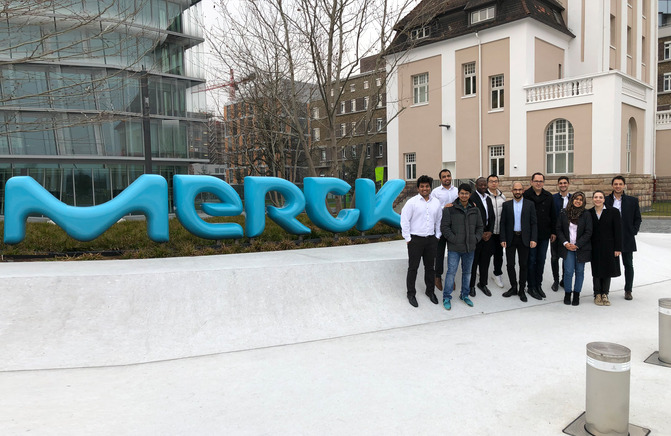 The group from the international study program "Process Systems Engineering" took the chance to present and discuss their final results with the audience at Merck.
The project on "Continuous Production of High Quality Perhydropolysilazane in a Modular and Automated Plant" was proposed by Merck and supervised by Reinaldo Hernández and Pourya Azadi from the DYN group.
The group from the international study program "Process Systems Engineering" took the chance to present and discuss their final results with the audience at Merck.
The project on "Continuous Production of High Quality Perhydropolysilazane in a Modular and Automated Plant" was proposed by Merck and supervised by Reinaldo Hernández and Pourya Azadi from the DYN group.
The Automation & Robotics students presented their projects
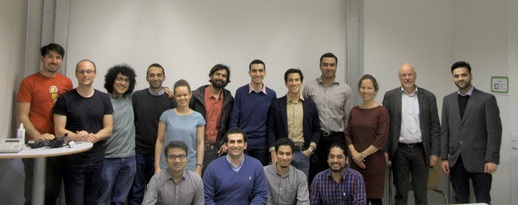 On Friday March 1st two groups of Automation and Robotics MSc students successfully presented the results of their project work carried out the past three months at the DYN chair.
The following presentations were given:
On Friday March 1st two groups of Automation and Robotics MSc students successfully presented the results of their project work carried out the past three months at the DYN chair.
The following presentations were given:
- Group 1: Designing and implementing a distributed control structure for a multi-agent system using ROS and RaspberryPi
- Group 2: Cost Efficient Wireless Process Automation
The General Consul of India visited the dyn laboratories
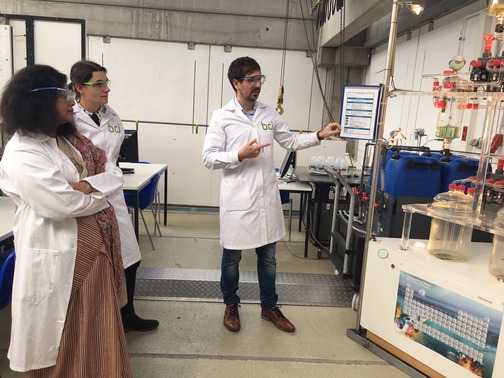
Pratibha Parkar, the Consul General of India in Frankfurt, visited the TU Dortmund University on 9th of April, 2019. As part of her visit to the TU Dortmund, the DYN group had the honor of showing her their student and research laboratories. She also met students from the Master's program Process Systems Engineering. During the subsequent discussion in the International Department, Ms. Parkar also met Indian students and program coordinators from other faculties of the TU Dortmund. The dicussions were focused in particular on the support options for Indian students in Germany.
Visit from Prof. Ignacio Grossmann
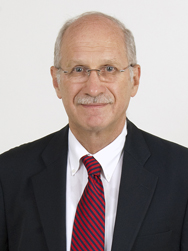 From February 4th to 12th 2019, Professor Ignacio Grossmann from the Carnegie Mellon University, USA, visited the BCI department.
Prof. Grossmann gave a 1-day course and 3 lectures at the department, including the Gambrinus and BCI Jubilee Lecture celebrating the 50th anniversary of the BCI department.
From February 4th to 12th 2019, Professor Ignacio Grossmann from the Carnegie Mellon University, USA, visited the BCI department.
Prof. Grossmann gave a 1-day course and 3 lectures at the department, including the Gambrinus and BCI Jubilee Lecture celebrating the 50th anniversary of the BCI department.
- 1-day course: "Recent Theoretical and Computational Advances in the Optimization of Process Systems under Uncertainty"
- Lecture 1: "Recent Advances in Computational Models for the Discrete and Continuous Optimization Models of Industrial Process Systems"
- Lecture 2: "Global Optimization of Nonconvex Nonlinear Generalized Disjunctive Programs"
- Gambrinus and BCI Jubilee Lecture: "Process Systems Engineering: Evolution, Accomplishments and Future Research Trends"

